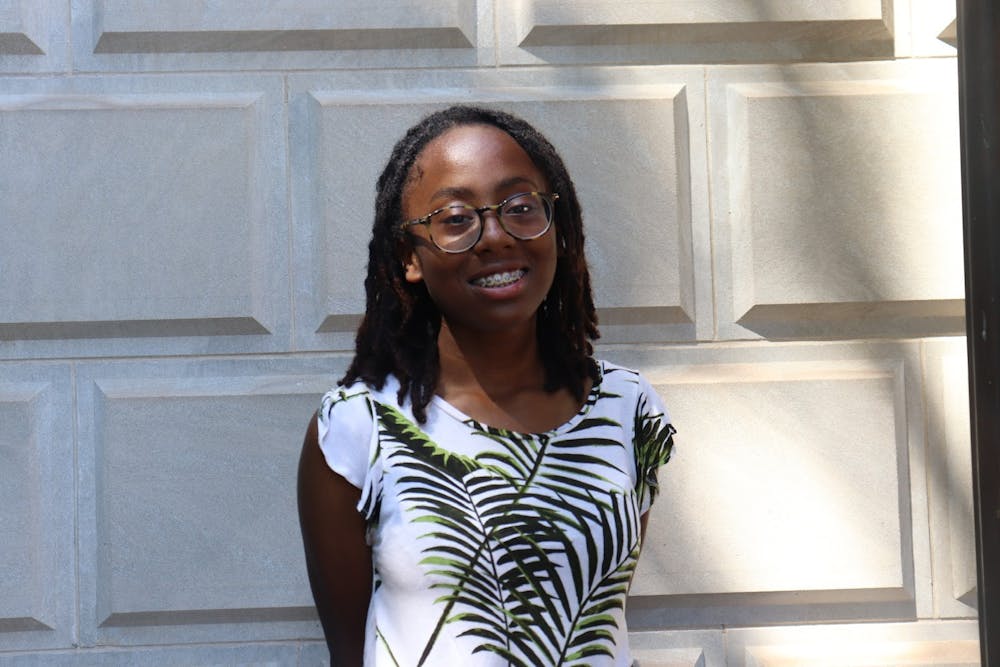American University announced its adjusted AU Forward plan two weeks before the move-in period for the fall semester and stated that it would offer fully online undergraduate and graduate courses with no residential experience. This caused an uproar from the student body, ranging from upperclassmen figuring out their off-campus housing arrangements to international students scrambling to cancel their expensive flights. The breaking news left us all in a period of uncertainty and cynicism for what this upcoming semester was going to be like in an online format, especially for those who express a need for accommodations.
What seems to be a trend for many universities is providing the bare minimum for students to add onto their diversity quota and avoid seeming negligent, rather than providing efficient accommodation and access. In order to receive top-notch service from AU, it seems as though students must have thousands of dollars laying around in their bank accounts and personal savings. One of the programs that the Academic Support and Access Center provides for students is called the Learning Services Program, which is offered to first-year students with learning disabilities who seek assistance in developing their reading and writing skills. The program offers weekly individualized advising for students, mentorship and has a history of preparing individuals to be successful in their studies.
While that all sounds perfect, the biggest hurdle that students face is the astounding $4,850 fee for the program and the specific academic credentials needed. No one should be financially burdened for their disability or be turned away from this service for being unable to fit into the academic mold of that program. For something that claims to help students with learning challenges, it’s incredibly ableist.
AU’s ASAC standards for accommodations, which require documentation and proof of disability, pose a financial inconvenience for students as well, especially for those with chronic illness, temporary disabilities and “invisible” disabilities. It’s unjust for the University to require this kind of process because many insurance companies won’t cover testing that isn’t deemed to be necessary.
“I had to show recent diagnosis and proof of my disability, which was fine because we were already planning to test me again before I turned 18 as part of my transition to adult hospitals,” said Katherine Greenstein, a first-year student. “However, that can be super expensive for folks who can’t get it covered or who don’t need it.”
It is clear that ASAC needs to revise their disability standards process that may be unnecessary for students with unwavering and unchanging disabilities.
Greenstein recently posted an article for the leftist student-run publication, The Rose, that explains that the Americans with Disabilities Act isn’t enough for people with disabilities, as it creates loopholes in the law and contributes greatly to microaggressions that they face.
Greenstein listed a ten-point demand for AUSG candidates to enforce if elected into office, which includes breaking down the ASAC paywall, creating spaces to converse with students with disabilities to destigmatize disability and being aware of their ableist actions and words that had become normalized in our society.
“I think people just need to include us, as a baseline, in discussions, especially when claiming some sort of intersectional perspective, but the truth is that we’re often left out of the discussion,” Greenstein said.
What I’ve personally experienced from the online learning space is that many professors are reluctant to provide copies of their lectures on Blackboard or Canvas with the fear that students will become “lazy,” be unlikely to attend class and will unlawfully use their intellectual property.
While these are valid concerns, what they fail to acknowledge is that due to the expensive measures to receive ASAC accommodations, some students are unable to provide a medical note that allows them to receive this alternative way of learning. There are many disability-related reasons why an individual may not be able to attend a lecture, which can range from having a chronic illness that flares up unpredictably to those with mental health issues that feel extremely isolated due to this online learning model. For those who do attend lectures, they may struggle to take in the entire lecture, be distracted by family members at home or aren't able to take adequate notes in this fast-paced environment. It’s unethical to object to providing alternative learning opportunities and assignments for students, as it contributes to the institutionalized ableism that is embedded in many of our campus resources and student organizations.
I call for AU administration and its faculty to provide the following to better care and equip its students with disabilities for a better future:
Allow all syllabi to be made available several weeks prior to the first day of classes to allow students to acquire alternative materials in time for classes. All materials should be double-spaced and on high contrast colors.
Enable closed captioning on all Zoom lectures and provide an MP4 of the lecture on the learning platform used immediately after class is finished. Media shown should have captioning as well.
Encourage AU to adopt a new system that has requirements based on classifications of needing temporary accommodations (short-term disabilities) and permanent ones.
Demand for all classrooms on campus and extracurricular activities to be ADA accessible.
It’s imperative that we include access and accommodation in the spaces that we create in order to foster a healthy sense of community and to properly elevate the voices of people with disabilities to combat ableism in our community and general society.
Kayla Kelly is a freshman in the School of Public Affairs and a staff columnist for The Eagle.





